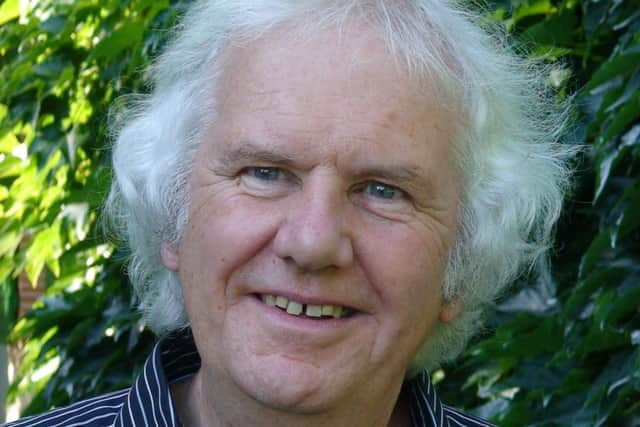Book review: So Many Lives and All of Them Are Yours, by Ron Butlin
Ron Butlin is entitled to be called a Man of Letters. It’s an old-fashioned description, but what else to call a man who has published novels, collections of poetry, plays and opera libretti? He has been at it a long time, too. I first came upon his work in the New Edinburgh Review when James Campbell was editing it. That was more than 40 years ago and indeed he had a story in an NER anthology published in 1982. The title of that story was “Journal of a Dead Man!” Many of those whose work appeared in that same anthology – James Baldwin, Naomi Mitchison, Giles Gordon, Henry Miller and George Mackay Brown among them – are now dead, but happily Butlin, very young then, is still going strong.
This novel – the follow-up to Butlin’s award-winning 1987 book, The Sound of My Voice – has its now 70-year-old hero Morris in a bad way, as he has been for much of his life; in a bad way, but not devoid of hope. Late in the story, he ventures on a summing up: “A quick scan through his life says it all – leaving home to live on the streets, giving up his love of music for a biscuit career” – that is, as an executive in a biscuit-making firm – “and marriage, giving up his career for drink, giving up his marriage for more drink. From the start he has been on a one-way trip to give himself and everybody near him a bad time.” If this came in the first pages of the novel you might toss the book aside. Happily is comes towards the end of a story which is rich in comedy while offering some melancholy truths too.
Advertisement
Hide AdMorris is on the run from what he has been. He has come on a winter’s night to a derelict cottage which was his boyhood home. He is making a break, a new start. Improbable as it may seem, someone has commissioned him to compose some music – a string quartet no less. He is indeed an active composer, despite everything, but only of tripe – jingle-jangles for fruit machines. Given his state, the commission is highly improbable, but he believes in it.


The cottage is where he lived as a child with his musical mother, whom he loved, and his stern father, whom he feared and could never please. It is scarcely habitable, an even worse mess than his own life. Still, he sets to work on it; his efforts comical if not entirely credible. He still has the companionship of the bottle and, despite everything he has not quite hit the bottom – that’s to say, he may drink anything but will still choose good quality cognac, Courvoisier if possible. Moreover, his life isn’t as ruined as the cottage. His son and daughter still love him enough to be concerned; texts are frequently exchanged. If only he can get the score for his Quartet written – his gods are Haydn, Mozart and Beethoven. Can he get something written? Can he pull through? Can he survive? These are the novel’s questions.
There is comedy and kindness in this novel too. Morris’s misfortunes are made less painful by his ability to talk them away, see the funny side of them. Butlin knows that drunks have a store of dark humour, are capable at moments of seeing the comedy of their condition by treating themselves as their own spectator sport.
Morris meets with unlooked for kindness from some of the villagers, among them one or two who remember him as a boy. Moreover, there is a woman who takes and interest in him, even to the extent of inviting him to play the piano at a concert.
There is comic exaggeration in this novel, Morris’s repair work on his ruined cottage, for instance. Then there is exuberance in the telling, and, best of all, a warm humanity. Morris may be adrift, but you can believe he won’t drown, not yet anyway.
Butlin looks at the dark side of life, but does not yield to it. This is a happily affirmative work. It ends with a Covid lockdown; I feel sure Morris will survive this too. The last sentence has him resolving to walk towards the rising sun.
So Many Lives and All of Them Are Yours, by Ron Butlin, Polygon, £12